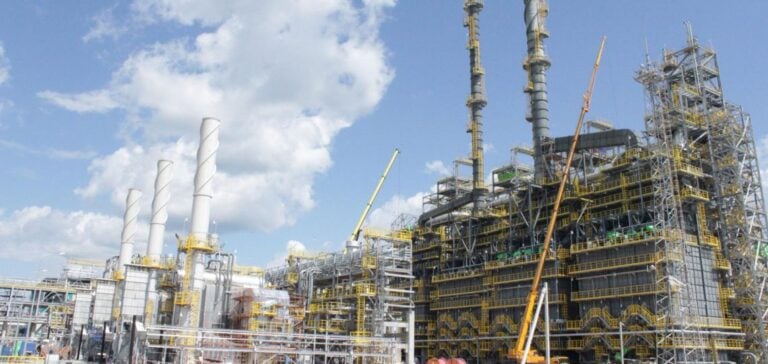A court in Kazakhstan’s capital, Astana, has issued a significant ruling, requiring the North Caspian Operating Company (NCOC) to pay 3.5 billion tenge (approximately 6.6 million USD) for activities deemed harmful to the environment. The case revolves around excessive gas flaring at the Kachagan oil field, located 80 kilometers off the coast of the city of Atyrau in the Caspian Sea.
This decision follows a complaint filed by the Ministry of Energy, backed by an audit confirming the violations. While praised by environmental authorities, the ruling has not yet come into effect, leaving room for potential legal appeals.
A consortium facing legal challenges
NCOC is comprised of several global oil companies, including KazMunayGas, TotalEnergies, Eni, ExxonMobil, Shell, along with Chinese CNPC and Japanese Inpex. Together, they operate the Kachagan field, one of the most significant hydrocarbon discoveries of recent decades, with reserves estimated between 9 and 13 billion barrels of oil.
This is not the first legal dispute between NCOC and the Kazakh government. The consortium is also facing another environmental complaint, with authorities seeking five billion USD for alleged damages caused by industrial activities.
Major environmental challenges
Kazakhstan, the world’s ninth-largest country by land area, is rich in natural resources, including hydrocarbons and rare earth elements. However, this wealth has come with growing environmental issues. The Atyrau region, where the Kachagan field is located, is particularly affected by pollution. Authorities are considering establishing “environmental disaster zones” to mitigate the impact on local ecosystems.
The Caspian Sea, the world’s largest enclosed body of water, is a fragile ecosystem threatened by pollution from oil industries. According to NCOC, preserving this environment is a “major challenge,” especially as the region’s extreme conditions—with temperatures ranging from -30°C in winter to +40°C in summer—complicate operations.
A signal for the oil industry
This ruling marks an important step in regulating the activities of oil giants in Kazakhstan. It underscores the government’s commitment to enforcing environmental standards and protecting ecosystems despite the challenges posed by large-scale industrial projects like Kachagan.
Heightened scrutiny of these operations may influence other consortia operating in similar regions, reinforcing efforts to minimize environmental impacts in resource-rich areas.





















